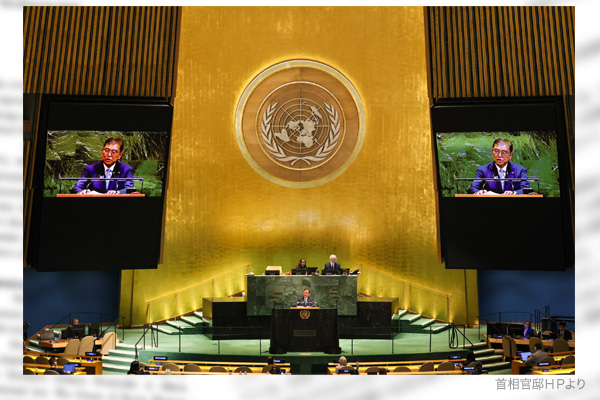In his address to the United Nations General Assembly on September 23, Japanese Prime Minister Shigeru Ishiba called for reforming the U.N. Security Council and creating a world without nuclear weapons. Both are easy to say but almost impossible to achieve.
How will the U.N. Security Council be reformed? Russia, which has invaded Ukraine, is one of the five permanent Security Council members. It would be impossible to remove Russia from the Council. Japan's desire to become a permanent Security Council member is impossible to achieve due to opposition from China and Russia.
A world without nuclear weapons is even more difficult to achieve. As the number of nuclear-armed countries is continuing to rise, China and North Korea are expanding their nuclear arsenals. Is it not the responsibility of Japanese leaders to embody our security policy in light of that fait accompli?
The U.N. is a victors’ club
“The United Nations was founded, primarily by the victorious countries (of World War II),” said Ishiba in the address. In fact, enemy-state clauses that apply to defeated countries like Japan and Germany still remain in Articles 53, 107, and part of Article 77 of the U.N. Charter, and they have yet to be removed.
The postwar order was built on the premise that victorious countries were righteous and the defeated were evil. The Tokyo Tribunal of War Criminals was a typical example of that narrative. Japan has been criticized by neighboring countries, particularly China and South Korea, for enshrining wartime Japanese leaders labeled as war criminals in the tribunal alongside other war dead at Yasukuni Shrine. Japanese public broadcasting still calls World War II “Pacific War” as directed by the United States while refraining from describing it as “Greater East Asian War” as named by the Japanese government during the war.
The farcical nature of the Tokyo Tribunal is evidenced by the fact that the supposedly righteous victors, who became the permanent members of the Security Council, soon began accusing one another of aggression shortly after the United Nation’s founding, rendering the Council dysfunctional to this day.
Rather than insisting on impossible goals, as Ishiba did, Japanese leaders should point to the contradictions inherent in the United Nations, which founded mainly by victorious countries, as well as those of the Tokyo Tribunal, which was based on the premise that victorious countries are righteous, and should work to overcome Japan’s self-deprecating view of history.
Roles of nation states are increasing
Sweeping the world in my student days in the late 1960s and the early 1970s was British historian Arnold J. Toynbee’s view that we cannot afford to indulge in nationalism any longer in an age in which the world is becoming one through modern inventions. In Japan then, many scholars insisted that nation states would eventually disappear in the course of history. However, responses to the COVID-19 crisis were taken on a nation-by-nation basis. Similarly, recent immigration and Trump tariff issues have been handled primarily at the national level. Given that the global language of Esperanto has failed to spread around the world, we should reaffirm the importance of nation states and their fundamental cultures and traditions. It is time to awaken from the illusion of world-government ideals embodied by the League of Nations and the United Nations.
Fumio Ota is a senior fellow and a Planning Committee member at the Japan Institute for National Fundamentals. He is a retired Vice Admiral of the Japan Maritime Self-Defense Force.


